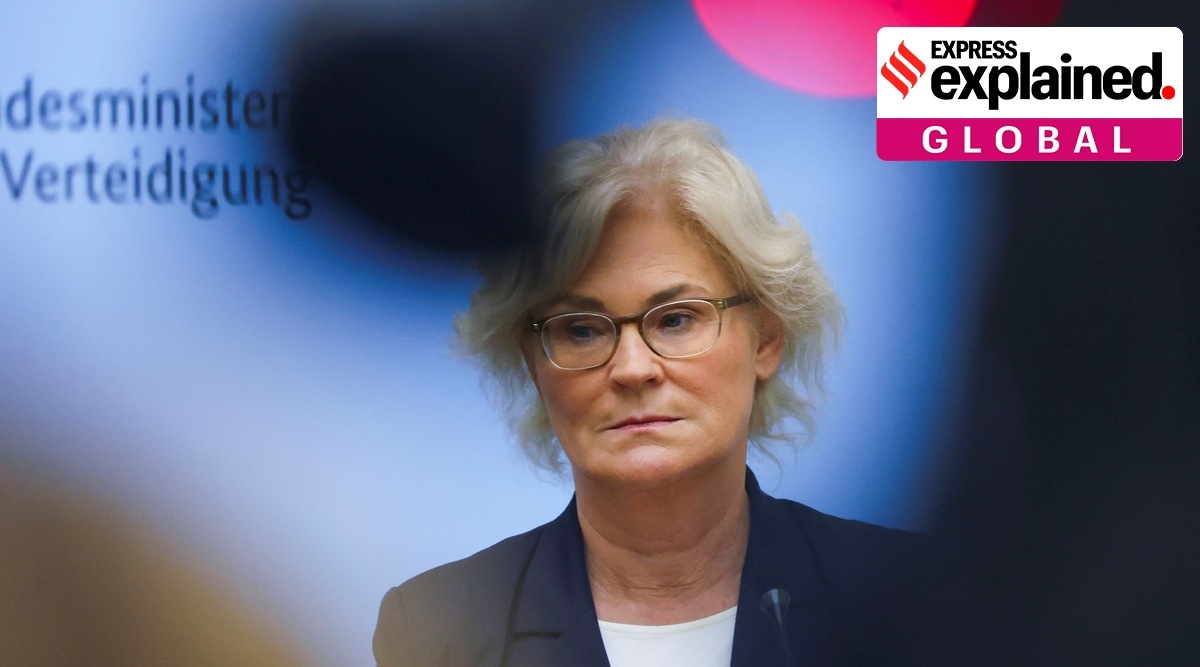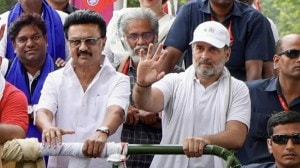Why Germany’s defence minister Christine Lambrecht had to resign
Lambrecht’s resignation has come at a crucial moment as Germany is set to meet defence ministers of other Western powers at an American military base to discuss support for Ukraine in its war against Russia.
 Lambrecht, in the initial days of the Russian invasion, was ridiculed for her announcement that Germany was supporting Ukraine by sending 5,000 military helmets.(Photo: Reuters/Fabrizio Bensch)
Lambrecht, in the initial days of the Russian invasion, was ridiculed for her announcement that Germany was supporting Ukraine by sending 5,000 military helmets.(Photo: Reuters/Fabrizio Bensch) German Defense Minister Christine Lambrecht on Monday (January 16) resigned after a series of PR disasters and a growing impression that she failed to modernise the country’s armed forces, especially since Russia’s invasion of Ukraine.
Most recently, she got embroiled in a controversy after posting a video address on social media on New Year’s Eve, in which she “attempted to recapitulate her experiences of the war in Ukraine but was almost drowned out by the noise of fireworks exploding around her”, according to DW. Since then, Lambrecht had been facing heavy criticism and calls for her resignation intensified.
In a statement, she said, “Months of media focus on me doesn’t allow for fact-based reporting and discussion about soldiers, the army and security policy in the interest of German citizens. The valuable work of the soldiers and many motivated people in the defence area needs to be in the foreground.”
The Indian Express looks at Lamrecht’s turbulent tenure and how her resignation can affect Ukraine’s bid to win the war against Russia.
A tenure marred by controversies
Appointed as the defence minister in December 2021, Lamprecht wasn’t seen as a strong candidate for the job as she didn’t have enough experience and knowledge about the military.
Things began to go awry for her once the Ukraine and Russia war broke out. Against this backdrop, the German government sanctioned a 100-billion-euro special fund to revive the country’s ill-equipped armed forces and Lambrecht was expected to quickly get the job done. However, she failed to do so, according to her critics.
Just last month, her capabilities were brought into question when 18 Puma infantry tanks — one of the military’s most advanced pieces of equipment — had to be put out of service due to technical difficulties during a military drill.
Before this, Lambrecht, in the initial days of Russian invasion, was ridiculed for her announcement that Germany was supporting Ukraine by sending 5,000 military helmets.
She also found herself in hot water after it emerged that she had taken her son on a trip in a military helicopter. According to The Guardian, although her son had paid for the trip, Lambrecht and her government found it difficult to defend themselves against the public outcry.
The implication of her resignation
Lambrecht’s resignation has come at a crucial moment as Germany is set to meet “defence ministers from Ukraine’s western allies at the American military base in Ramstein on Friday to discuss further support for Ukraine”, according to the BBC.
The country’s Chancellor Olaf Scholz has said that he would swiftly find her successor. As per a DW report, the ruling party Social Democrats’ (SPD) leader Lars Klingbeil, long-time Labor Minister Hubertus Heil, and Eva Högl, the special parliamentary commissioner for the Bundeswehr military, are the frontrunners.
Regardless of who becomes the next defence minister, they would be under immense pressure to not only improve Germany’s military strength but also ensure its unwavering support to Ukraine.
Germany is already facing heat for its “cautious approach” regarding sending heavy weaponry to Ukraine. According to the BBC, there have been “renewed calls to send German-built Leopard 2 tanks – which Ukraine considers vital if it is to defeat Russia – or at least approve their delivery from countries such as Poland.”
Last week, Scholz revealed his plans to supply Marder infantry fighting vehicles to Ukraine. The decision was taken along with the US, which at the same time announced to send Bradley armoured vehicles, said the BBC report. Soon after, the UK announced it would supply Challenger battle tanks, “increasing pressure on Germany to act”.
- 01
- 02
- 03
- 04
- 05






































